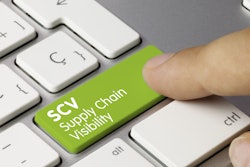
In 1999, two developers came up with the idea of an online platform where internet users could easily share and download songs for free. One year later, the file sharing business had over 20 million users and revolutionized the streaming world.
It may seem out of place to be writing about the music industry to an audience of manufacturers, but there’s a point to be made. There are many aspects of the underlying technology that ushered in this new era of online music distribution — peer-to-peer (P2P) file transfer — which correlates to the ascent of what is today called blockchain. The way P2P redefined music sharing today begs the question, how can manufacturers use a similar, decentralized network like blockchain to help redefine today’s supply chain?
Fact from fiction: The story behind blockchain
At its foundation, blockchain is a distributed ledger that can validate transactions without the need for a central authority. No one owns the ledger — instead, it’s spread across the nodes that constitute its network and is publicly available. Furthermore, as each participating node receives a copy of the blockchain, the network forms a set of checks and balances that self-polices itself and ensures the transactions recorded on it are safe and non-corruptible.
To gain an even deeper understanding of blockchain, you must also understand the misconceptions around the technology. First, blockchain is not simply “bitcoin” or “crypto.” Many people think blockchain and cryptocurrencies mean the same thing and use these terms interchangeably. This is not the case. To distinguish both these terms, cryptocurrencies like bitcoin are digital assets used as a medium of exchange. In fact, you can say that cryptocurrency is one of the applications of blockchain.
Another misconception is that blockchain is a “perfect solution.” There’s a lot of hype around blockchain but there are also some serious pitfalls unless the technology is vetted correctly. Blockchain has made huge strides over the last few years but even so, no technology is perfect and successful results require education and proper implementation.
One last myth that needs to be debunked is that blockchain is “only relevant to the finance industry.” Yes, this technology historically has strong ties to the world of finance but today, blockchain is being used across multiple industries including supply chain, logistics and manufacturing. If taken to heart, this misconception could prohibit some really impactful and progressive business opportunities outside of Wall Street.
Quid pro quo: The benefits and ROI
The benefits that blockchain provides can be applied to a variety of industries. Here are five key benefits that manufacturers can expect from blockchain:
● Decentralized. Data in blockchain are not stored in one central database but are dispersed between multiple members of the network. This makes it extremely difficult for one party to tamper with the data without others noticing.
● Traceability and trust. Transparency allows for anyone to see the information and verify its accuracy. Blockchain allows for verifiability and visibility across the supply chain.
● Cost and time savings. Many manufacturers are still operating through pen and paper documentation. As a result, slow and manual processes can be inefficient in handling large and complex transactions. With blockchain, manual processes can be automated like automated quality checks and automated payments.
● Quality control. Making quality inherent in organizational processes reduces the risk of recalls and helps maintain brand reputation and customer satisfaction. With blockchain, quality checks become simpler and the technology safeguards the process.
● Opportunity for innovation. Artificial intelligence works well with trusted data across the blockchain. When blockchain extends past one company’s four walls, it becomes really powerful and can be applied to the entire supply chain. The more variables captured by blockchain mean the more insight you have to make better decisions across the entire supply chain.
Almost all industries can benefit from blockchain, but here are a couple of specific used cases of how the technology can be implemented. Take pharmaceutical for example. Today, blockchain is extremely relevant to this industry and has the potential to revolutionize healthcare. It’s been reported that more than 10% of all pharmaceuticals in the global supply chain are counterfeit. In some countries, counterfeit pharmaceuticals account for 70% of all drugs in the supply chain. These numbers are staggering, but using blockchain technology makes it much more difficult to put fake products on the market because of its traceability and transparency.
When it comes to the supply chain and manufacturing as a whole, one key benefit of blockchain is smart contracts. There are so many scattered paper contracts and documents across the supply chain — contracts that control how you pay and how people pay you. Imagine having all of these contracts visible on the blockchain that won’t be deleted or tampered with, and if changes are made to the contract, it will be updated for everyone to see. These tasks that are normally done manually by a human can now be automated, saving time and money.
Click here to hear more about blockchain in the supply chain:
We will block you: The barriers to overcome
The benefits of blockchain speak volumes, so why do barriers to adoption remain? First, there’s the “all aboard effect.” Blockchain is only as effective and good as those participating, so it’s imperative to success that those using blockchain are bought-in and knowledgeable. That leads to the second barrier — the knowledge gap. Despite being a mature technology with positive feedback from users, blockchain is still relatively new and to fully embrace it requires some education. Lastly, there are privacy concerns. When some learn about blockchain and its level of transparency — everyone can read the transaction history — red flags go up. Transparency should not be misinterpreted as violating privacy. The identity of parties involved in a transaction is hidden via complex cryptography and represented only by their public address (code). While the identity is secure, all the transactions that are carried out by public address are accessible. This level of transparency enhances trust in the system while actually securing privacy.
In times of uncharted disruption and uncertainty, blockchain presents unparalleled value to redefine today’s supply chain. While there are still barriers to widespread adoption, the blockchain benefits known and the ample opportunities for innovation available point toward a positive direction in the years to come.
Register for SCN Summit: Supply Chain Visibility, where Plex Systems will discuss aligning demand and supply to gain visibility and control over your supply chain.



















